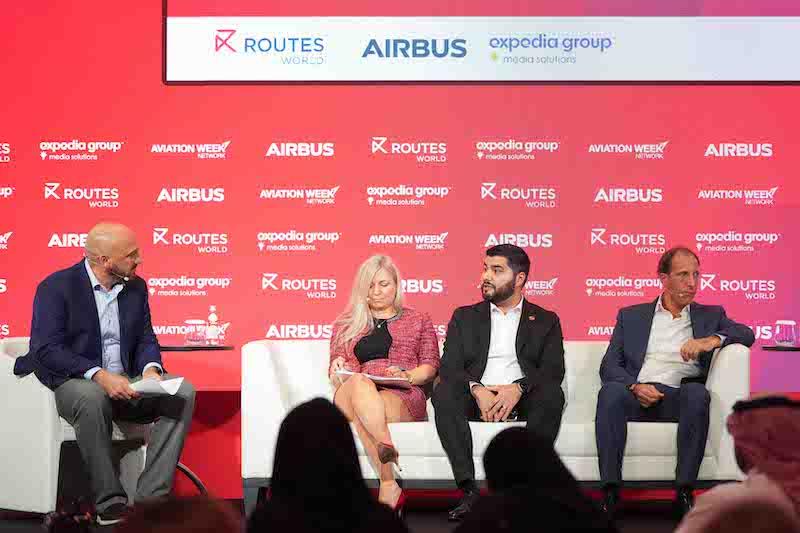
From left: Evan Berg, director of air service development at Informa; Agi Smith, head of airport development at easyJet; Michael Simionescu, head of airport partnerships and incentives at AirAsia Group; Henri-Charles Ozarovsky, group head of strategy at TAP Air Portugal at Routes World 2024.
Subscription Required
This content requires a subscription to one of the Aviation Week Intelligence Network (AWIN) bundles.
Schedule a demo today to find out how you can access this content and similar content related to your area of the global aviation industry.
Already an AWIN subscriber? Login
Did you know? Aviation Week has won top honors multiple times in the Jesse H. Neal National Business Journalism Awards, the business-to-business media equivalent of the Pulitzer Prizes.





